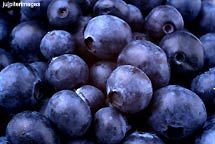
Eating right not balanced diet only fights ageing – but can also protect you against diseases associated with age. Adopting healthy dietary patterns that emphasize the inclusion of nutrient-dense foods, such as fruits, vegetables, and whole grains, supports overall health and wellbeing. These 20 foods should be part of your regular diet.
When choosing what to eat, focus on foods rich in essential nutrients and high in nutrient density, such as nuts, pulses, grains, seafood, fruits, and avocados. Highly nutritious foods like these provide numerous benefits, supporting your health and wellbeing in multiple ways.
Introduction
Eating a wide variety of nutritious foods is one of the best ways to support your overall health and enjoy numerous health benefits. A healthy diet that includes whole grains, leafy green vegetables, lean meats, and healthy fats can help reduce the risk of chronic disease and maintain a healthy weight. By choosing foods rich in essential nutrients like vitamin C, vitamin E, and omega 3 fatty acids, you can support heart health, lower blood pressure, and ensure your body gets all the nutrients it needs. A balanced diet that features different foods, from leafy green vegetables to whole grains and lean meats, is key to optimal health and wellbeing.
Apples
Apples are rich in two plant compounds called catechins, and in quercetin. All help to prevent strokes, heart disease and cancer. Quercetin has also been shown to improve the firmness of collagen, which helps the skin to keep its elasticity. Apples are also rich in the soluble fibre pectin, which helps to lower blood cholesterol. Lastly, the flesh of apples contains the mineral boron, which helps to prevent calcium loss and provides some protection against osteoporosis.
Avocados
Avocados contain an amino acid called glutathione, which strengthens your defences against heart disease and cancer. They are also rich in vitamin E, a powerful antioxidant important for good skin condition and wound healing. Avocados are also a good source of monounsaturated and saturated fat too, which is linked to lower risk of heart disease.
Barley
Whole-grain barley – or “pot barley” – and other whole grains, such as rye and oats, contain phytic acid which has been shown to inhibit the growth of cancers. Brown rice is another nutritious whole grain option, offering higher fiber content and more vitamins and minerals compared to more processed rice. Barley is particularly rich in chemicals called protease inhibitors, which also have properties that combat cancer, including breast and bowel cancer. Whole grains are also high in fibre, which helps to keep the heart healthy digestive and circulatory systems healthy.
Blackcurrants
Blackcurrants are one of the richest natural sources of vitamin C, at around 130mg per 100g when stewed. Vitamin C is an important antioxidant which helps keep the immune system healthy, keeps the skin in good condition and helps wounds and fractures to heal. High levels of vitamin C are linked with the lowest risk of heart disease. Blackcurrants also contain other implant compounds such as lutein (see Broccoli) and anthocyanins (see Blueberries), and the oil from their seeds has been shown to have anti-inflammatory effects, relieving arthritic pain. Vitamin C from foods may offer more protection than supplements.
Blueberries
Discovered in recent tests to be the most powerful antioxidants of all, blueberries have the strongest potential to prevent the diseases of old age. It has been found that 100g a day can stimulate the growth of new brain cells and may help prevent memory loss. Blueberries are also rich in a plant chemical group called anthocyanins, which help oxygenate the skin and keep it looking young. Many other red, leafy green, purple and blue berries have similar properties.
- Recipe: Mini Blueberry & Nectarine Tarts
Broccoli and cruciferous vegetables
Broccoli is high in antioxidant carotenoids, vitamin C and indoles, which help fight lung, breast and colon cancers. It is rich in lipoic acid, a fatty acid linked with increased brain power and energy. As well as high levels of lutein and zeaxanthin, which help keep vision healthy, it’s the best vegetable source of vitamin E which is linked with protection against Alzheimer’s and cardiovascular disease. It is rich in fibre, and a natural source of chromium, which helps to regulate blood sugars.
Carrots
Carrots are the best source of carotenes – compounds which have a strong antioxidant effect that is important in helping to prevent cancers. Regular carrot intake and healthy diet can also help protect against macular degeneration and cataracts, help minimise night blindness and reduce harmful cholesterol. Carotenes also protect the skin from sun damage and cancers. Eating carrots cooked with a little oil or fat encourages carotene absorption.
Carrot sticks also make a great addition to a lunch box for a healthy snack.
Celery
Celery is renowned for reducing blood pressure, possibly because it contains the plant chemical 3-n-butyl phthalid, as well as apigenin, one of the flavonoid plant chemicals. It is also an excellent source of potassium, a mineral that balances body fluids and can lower blood pressure in some. Celery also has anti-inflammatory properties and can help reduce pain from arthritis, as well as helping to lower cholesterol and beat fluid retention. One study found that celery is one of the vegetables most strongly linked with protection from bowel cancer.
Citrus fruits
Citrus fruits, such as oranges, grapefruits, lemons, and limes, are a powerhouse of vitamin C and dietary fiber. These fruits are not only refreshing and delicious, but they also help support overall health by boosting the immune system and promoting heart health. The high vitamin C content in citrus fruits acts as a potent antioxidant, helping to protect cells from damage and reduce inflammation. Their fiber content aids digestion and can help lower cholesterol, making them a smart choice for those looking to maintain a healthy heart. With their low calorie count and hydrating properties, citrus fruits are perfect as a healthy snack, a zesty addition to salads, or a flavorful juice to brighten up your meals.
Eggs
Fresh, organic eggs that are certified salmonella-free are an excellent food, rich in important nutrients. They contain high levels of selenium which may be lacking in healthy foods in the diet and have cancer- and heart disease-fighting qualities. They’re a good source of iodine, which can help to promote healthy thyroid activity and also contain lecithin, a substance that can help to prevent heart disease and gallstones. Eggs are rich in vitamins and minerals, including vitamin E and zinc – both lacking in many older people’s diets – as well as the B group, which helps nerve health and stress, and protein. Aim to have about four eggs a week unless you have specifically been told to avoid cholesterol in your diet.
Fermented foods
Fermented foods, such as kimchi, sauerkraut, yogurt, and kefir, are rich in probiotics and other beneficial compounds that support gut health and strengthen the immune system. These foods are packed with vitamins, minerals, and antioxidants, which can help lower the risk of chronic disease and improve overall wellbeing. Adding fermented foods to your diet is easy—they make a tasty side dish, can be mixed into salads, or enjoyed as a satisfying snack. The probiotics found in fermented foods also aid digestion and may help alleviate symptoms of irritable bowel syndrome, making them a valuable addition to a healthy diet.
Flax seeds
Flax seeds – sometimes called linseeds – are tiny golden seeds from the flax plant. Chia seeds are another highly nutritious seed, known for their rich mineral content and practical uses such as making puddings and other recipes. They are one of the few plant foods rich in alpha-linolenic acid which the body converts to the fatty acids EPA and DHA. These fats have a host of important anti-ageing properties – they help to prevent blood clots, stroke and heart disease, may improve brain power and lift depression, can help arthritis, improve insulin sensitivity and are vital in retaining smooth skin. Flax seeds also contain lignans – oestrogen-like plant compounds that may reduce menopausal symptoms.
Garlic
Fresh garlic contains several compounds, the most important of which is allicin. This has been shown to protect against high blood pressure, infections, candida, indigestion, stomach ulcers and bowel disorders. Several studies have shown that it can reduce harmful cholesterol by about 12 per cent, and inhibits new growth of plaque in the arteries that can lead to heart attack or stroke. Garlic may also inhibit the growth of cancer cells and strengthen the immune system.
Greens
Leafy dark green vegetables, such as Savoy cabbage, kale, and spring greens, are good sources of two carotenoids which have been shown to help prevent age-related macular degeneration and cataracts. Greens are also a good source of easily absorbed calcium, which is important for healthy bones and teeth, and leafy green vegetables are rich in potassium, which helps protect against calcium loss. In addition, they’re a good source of vitamins C and E.
Herbs
Several herbs are strong antioxidants, even when used in small amounts. Thyme, oregano, rosemary, sage, basil and coriander all contain high levels of phyto-chemicals, which can help ward off heart disease and cancers.
Lean meats
Lean meats like chicken, turkey, and certain cuts of pork and beef are excellent sources of high-quality protein and essential amino acids, which are vital for building and repairing muscle. These meats are low in saturated fat, making them a heart-healthy choice for those looking to reduce their risk of heart disease. Incorporating lean meats into your healthy diet can help you meet your protein needs without the added saturated fat found in fattier cuts. Lean meats are versatile and can be grilled, baked, or stir-fried, making them a great addition to salads, soups, and sandwiches. Choosing lean meats supports overall health and helps maintain a balanced diet.
Legumes
Legumes, including beans, lentils, chickpeas, and peas, are a nutritional powerhouse packed with plant based protein, fiber, and essential nutrients. They are low in fat and calories, making them an ideal choice for those aiming to lose weight or maintain a healthy weight. The high fiber content in legumes helps lower cholesterol levels and supports heart health, while their protein makes them a satisfying and filling option for meals. Legumes are incredibly versatile—they can be used as a side dish, added to soups and stews, tossed into salads, or even enjoyed as a healthy snack. As a great source of plant based protein, legumes are a smart substitute for meat in many recipes, helping you maintain a healthy diet and support overall health.
Nuts
Nuts are a good source of magnesium, which is vital for energy levels. Magnesium can help keep muscles supple and prevent aches and pains, and may also lower the risk of osteoporosis. Almonds, Brazils and peanuts are good for helping to build or maintain muscle mass and help protect against glaucoma, diabetes and high blood pressure. Almonds are also rich in monounsaturated fatty acids, which contribute to cardiovascular health. Research in the USA has shown that just two 25g portions of fresh nuts a week reduced death from heart disease in men by up to 47 per cent.
Oily fish and omega 3 fatty acids
Oily fish such as salmon, herring, mackerel and sardines are the main source of the important fats called omega-3s, which are heart healthy fats. Two of them – EPA and DHA – are not found in any other foods. These fats have a variety of health benefits too, including offering some protection against the decline of brain power and diseases such as Alzheimer’s and Parkinson’s. They are also anti-inflammatory, helping to minimise the pains of arthritis, rheumatism, and research suggests they may help reduce the risk or symptoms of rheumatoid arthritis. In addition, they can help prevent blood clots, coronary disease and strokes, and omega-3s can also play a role in lowering cholesterol.
Olive oil
Although olive oil is almost 100 per cent fat, it is rich in nutrients and compounds that can help protect against age-related disease. It is high in monounsaturated fats, which lower levels of harmful LDL cholesterol while protecting the levels of “good” HDL cholesterol, and thus helps fight heart disease and stroke. Olive oil also contains squalene and oleuropein, which are powerful antioxidants, protecting blood cholesterol from oxidation. This antioxidant effect may also reduce the risk of some cancers, particularly of the breast and colon. Top-quality, cold-pressed oils contain more of healthy fat and the protective compounds; extra virgin olive oil, in particular, is high in antioxidants and monounsaturated fats, making it ideal for salad dressings or for flavoring cooked dishes.
Onions
The onion family, including garlic and leeks, are good detoxifiers and are also antiseptic and antibacterial. Onions are rich in bioactive compounds that contribute to their health benefits, such as improved digestion and cholesterol management. The sulphur compounds they contain are also linked with protection against strokes, high blood pressure, heart disease and cancers. Just 1g of onion a day is enough to help strengthen the bones. Onions are rich in flavonoids and potassium, which can reduce blood pressure and keep the arteries and blood vessels healthy, and the onion family may also help to keep blood sugar levels even by regulating insulin production.
Spices
Most of these are strong antioxidants and have a variety of beneficial effects. Ginger is an anti-inflammatory and can help ease the pain of arthritis. Chillies contain the plant chemical capsaicin, which is a great reliever of general aches and pains, and coriander seeds can lower blood pressure.
Soya
Soya beans contain high levels of plant oestrogens and magnesium, both of which may help to minimise menopausal symptoms. Soya beans are high in soluble fibre, and have also been shown to help reduce the risk of heart disease. Soya protein helps build and maintain collagen and elastin, both important for keeping skin in youthful condition.
Tomatoes
Tomatoes are rich in the carotenoid lycopene, which provides some protection against cancer and heart disease. Recent trials have found that women who eat a lot of lycopene have lower risks of ovarian or breast cancer, while in men it helps prevent prostate cancer. Tomatoes are also a good source of lipoic acid, which helps increase energy levels and improve brain power in some people. Small, ripe tomatoes tend all the nutrients and to contain the highest levels of lycopene and cooking them helps absorption.

